Bill Wyman - Interview
by Admin
published: 23 / 8 / 2016

intro
In this archival interview from 1990, Bill Wyman talks about his career with the Rolling Stones, his controversial marriage to Mandy Smith and his then biography, 'Stone Alone'
Every morning, Bill Wyman walks along the King’s Road, Chelsea, to his office. There are no minders, no entourage, he is punctual for every appointment and his manager tells me, “If he were given three pence too much in his change, he’d go back to return it.” For anyone meeting 54 year-old Wyman for the first time, it is difficult to believe that this is the pop star for whom the word “groupie” could have been invented. Indeed, in his new book, 'Stone Alone' – published by Viking – about life with the Rolling Stones, he says that between 1963 and 1965 he had 278 girls. A precise number – because, since childhood, Bill Wyman has kept a detailed journal every day. He loves to write and has personally penned several books. In another life he says he would have liked to be a journalist or a playwright – or an artist or photographer. But these professions might not have attracted so much female adulation, Bill agrees. Over his life time there might have been 1500 girls – or more, Bill has calculated. When I suggested 278 in two years seemed quite a lot, he responded with a grin: “It’s not many. Only one every four days. Sometimes there’s been four or more girls in a day as well, so I suppose I must also have gone without for a fortnight or more on occasions. Other people did drugs or hit the booze very hard. I didn't do that in a big way. Girls and sex was my vice.” The promiscuous years are now over, but Bill admits that, in the middle of his sixth decade, giving up girls has, for him, been much harder than giving up cigarettes. He tells me he is, however, deeply in love with his beautiful young wife, who is getting stronger by the day. Mandy Smith has been desperately sick. She has lost a debilitating amount of weight and has been in and out of hospital ever since their hugely publicised marriage in June 1989. They were introduced before she was sixteen, but in no way did she ever look or behave like a child. “When I met her,” he says, “it was immediate emotional involvement. I’ve never been struck so instantly by anyone in my life. Previously I’d always been in control, always cautious. Now Mandy is getting better rapidly. Every day I see an improvement. She was so ill at one point and was having breathing difficulties. Another week or so and she would probably have been gone.” When Mandy first met the celebrated musician, people might have assumed she was the vulnerable one. In fact, as Bill Wyman explains at length, it was he who was terrified of being hurt by the staggeringly beautiful young girl. This is perhaps because he has little of the arrogance of many pop stars. “We haven’t had a marriage,” he says. “We spent five days together after the wedding and then Mandy was ill and I had to go off on tour. There have been so much unfair, untrue comments about this relationship being on the rocks. Last year was terrible. Mandy was unwell, I was away with the band, my dad was ill and dying. I think nearly everybody in the rock'n'roll world lets you down when you do need help, but I must say Mick Jagger was very concerned for my personal self, not just the tour, and Charlie Watts is very good. He has always been the perfect gentleman and friend, has Charlie. Mick would write little notes and put them under the door. On tour I had some very bad times and, yes, I’m prepared to admit it, I did cry. But I could have cried twenty more times than I did. “Like most men in my generation, I was conditioned to behave in that old-fashioned, stiff-upper-lip, English way. Deep down I still believe all those horrible manly things I grew up with, like boys don’t show affection, boys don’t cry, boys must give an example to girls. Even five or ten years ago I could not have admitted I had ever cried." “Touring now is a real drudge for me,” Bill continued. “I get so bored with it all. I am probably even more bored than people say I look on stage. I like playing music, of course. And I do appreciate the loyalty of Stones fans. Giving a great performance is still important to me. But the whole Stones thing is just so over-blown. My dream for the future would be to have a different band of top class musicians and play real quality blues or jazz-influenced music, just touring smaller venues and actually enjoying myself, feeling a true connection with audiences who actually appreciate a quality performance. Maybe that will happen one day – it is my big dream for the future." "You see, I came to music through a love of blues and jazz, though I couldn't have pigeon-holed the different styles of music back then,” Bill recalled. “I played piano as a kid and sang a bit at my grammar school in Beckenham, South London. I bought my first guitar – a Burns – on hire purchase back in 1954. But I was dissatisfied with my progress on it and switched to electric bass guitar when those instruments gained popularity in the late 1950s. I also played acoustic double bass and mandolin occasionally. I listened to a lot of music when I did my national service with the RAF in the mid-fifties. I was born William George Perks Jr...named after my dad, William Perks, who was a bricklayer. But I took the stage name Wyman from a mate I met in the RAF - and in 1964 I changed my name officially to Wyman. So I gained a better knowledge of music - including how to read and write it - plus a new name from my RAF days! After that I played bass guitar or double bass with a lot of different London-based jazz or blues-orientated bands before I joined the Stones in December 1962. But now I am quite keen to do something different as I feel a new phase of my life is beginning. When Mandy comes out of hospital we are going to have a different, new apartment in London. It is only fair we should not be living in some place where I have been with an ex-girlfriend. Mandy is young, she has got a bit more vitality than me; she is into life. These days I am a recluse so we will do a bit of both. A bit of hiding and a bit of living. We haven’t yet had that close married thing. But I feel it’s like Spring is coming in my life now. On present form, I only get married every thirty years or so and it would be nice to have more kids. Mandy is a lovely girl and I say that not just because she is my wife. She is building up now, putting on weight. Now I don’t want to work for a while. I want to spend time with her. As much as I can. We all need affection and loving.” There was little love or comfort in Bill’s own early life. He was the eldest of six children and brought up in South London. His father was frequently out of bricklaying work and treated his clever son with what Bill has described as “harsh brutality” though Bill says “it wasn't badly meant”. When he was eleven, Bill won a scholarship to Beckenham and Penge Grammar School. He showed great promise – especially at English composition and maths. But just before he was due to do his GCEs – and teachers were confident he would pass all of the eleven exams that he was taking – his father forced Bill to leave and take the job he had found for him calculating the payment of bets for a local bookmaker. The family desperately needed the extra money from the young Bill's wages. Qualifications might have changed the course of his life, and the lack of them embittered Bill for many years. Even when Bill was enjoying early success with the Stones, he was still bitterly resentful that he had not had an opportunity to go to university. “I had to fend for myself very early on,” he says. “I was very introverted, very shy, and you try that bit harder to improve yourself when you are like that. I am still shy in many respects. I am shy when I am out on a romantic evening. This is the absolute truth. All my life, whenever I have spent a first night with a lady, it has always been me saying, ‘Switch off the light.’ Girls are very free; they just fling all their clothes off, I've found. And that always shocks me. We had such lack of privacy in childhood you’d think I’d have got used to it, but I never have. I am still great friends with quite a lot of old girlfriends. Perhaps not the one-night-stands, but I still know a number of those who I was with only three or four times. Talking about home when we were kids sounds a bit like a Monty Python sketch – ‘I used to live in a shoe box on the M1. No, worse than that, I didn’t even have a shoe box.’ But it was hard, worse even than I have said in my book. As a family we truly were scarred by poverty. The face flannel doubled as a dishcloth. All six kids shared one toothbrush; we changed our socks once a week. The house was a right mess and I never liked it. If I opened a drawer, everything was just stuffed in it. The result is that today I am meticulous, because for so long my life was such an untidy mess. I was always straightening up. When my parents went out to the cinema, which they might do as a special treat once a month, I would have a good clear out. I always used to save things, cut stories out of comics, I kept detailed diaries, but my mother did not give it any importance at all and all those things were thrown out. She destroyed my diaries once when I was in hospital and that is why I have kept all my son Stephen’s notebooks, all his school reports, everything.” Stephen is his only child and Bill Wyman is justifiably proud of the grown-up son who has inherited his famous father’s diffident charm. He has also inherited his intelligence. There is scarcely an interview Bill has given in recent years in which he has not said, “Stephen has got ten ‘O’ Levels, three ‘A’ Levels and a top Honours Degree from Aston University.” He brought Stephen up on his own after his first wife left and Bill has clearly been a committed and loving parent. “I stayed in my marriage for three years, trying very hard to make it work for Stephen’s sake. People tended not to stray when I was young and they seemed to think and act much more morally back then. Divorce was definitely something to be avoided." “Before we married I didn’t have an apartment, didn’t have a car,” Wyman recalled. “You always seemed to be just snuggling up together in the back row of the cinema. My first wife left when Stephen was four and for years we neither saw nor heard from her. Then she reappeared fleetingly for a few months just before Stephen’s thirteenth birthday when she didn’t even bother to send him a card. After that she vanished again. Recently she did try to make contact, but Stephen won’t see her. He says, ‘She didn’t love me,’ and it has definitely affected him. He’s a very clever boy, doesn’t smoke and is the opposite of the way I used to be with girls. He’s a strictly one-girl-at-a-time man. Very mature. And I admire that. Stephen and I have separate apartments in London, but we share weekends in the country. He helps with my management now – he’s excellent at it, too. When he was little I used to hug and cuddle him a lot, though since he was about nine we just shake hands. But he has always known that he could ask me anything and that I would always tell him the total truth, as I saw it." “I was never, ever able to ask my own dad anything and certainly nothing about sex,” Wyman continues, ruefully. “I learned about sex at school and it was something dirty and horrible. Ironically, I was repulsed by the idea. I remember years later talking to a psychiatrist friend in Los Angeles and he was convinced that my parents’ narrow outlook towards sex accounted for me eventually becoming a groupie-lover. Personally, I’m not so sure that it is as easy as that. It is still difficult though for me to show affection, even sexually. And to build a close relationship is hard. I have to make the effort and I am always being told I could be much more romantic. As a child I was very aware of not being loved. I was never, ever cuddled; none of us was – not ever. Thinking about it now, perhaps there is something in the suggestion that my need for association with women ever since is because of that coldness in my upbringing. It probably is. My father came into the house, went out, never spoke. He would never even say ‘Happy Birthday’. My mum might give me a card, although she would occasionally miss birthdays some years, just forget. And I certainly don’t ever remember a birthday present. Neither do any of my brothers or sisters. Mind you, there wasn’t much money coming into the home, but you would have thought they could have managed something, however modest and however inexpensive. It really is the thought that counts – and kids do understand that. I do recall, though, that my gran would cuddle me occasionally, but after she died – when I was about seven – there was never anybody to talk to me about my problems. Writing my book was like a form of self-hypnosis, psychiatry, for me and I have had a lot of trauma doing it. At times I would feel physically sick. But I was determined to finish it and I was eventually able to work out a lot of emotions writing the book; it was ultimately a great relief. The thing that strikes me most is how cleansing the book has been, learning about why I have needed women – though as I have said, I’m really not sure of all the reasons. Also learning about why I collect things. I collect stamps, cards, toy soldiers, old comics and Dinky toys. I bought a real castle – with 850 acres of ground – and it was like that was just a toy for me. As I wrote the book I found there was quite a lot of bitterness about the band, about my professional life and about my parents. But when I look back now I really can understand so much more. My parents’ own childhood was so harsh, far worse than mine. My dad’s upbringing was like something out of Charles Dickens. Unbelievably bad; brutally so. We had a huge row one Christmas – on my parents’ 50th wedding anniversary. I had arranged this special party. My brother had agreed to fly back from America; it was all to be a big surprise. Then at the last minute my parents said, ‘It’s our anniversary and we’re going away.’ I think they were annoyed because they thought we weren’t going to do anything for them. I said, ‘You can’t do that, we have organised something really special.’ They said, ‘Well, you should have told us,’ and then suddenly everything just blew up; it all came out. I said, ‘You were never good parents, you never loved us, you never showed us affection,’ and my sister said the same. My parents said, ‘We tried,’ and in the end they just stormed off. We didn’t speak for nearly a year after that and then suddenly they came to me and said, ‘We do care for you Bill, we really do.’ “My father died last year, but we were able to get closer, to talk, in the eighteen months or so before he died. I am now so glad about that. These days I often telephone my mum and at the end she always says, ‘I know we never really knew how to show it but just remember, Bill, I did love you, I really did. I still do.’ And that counts for a lot!”
Band Links:-
https://twitter.com/bill_wymanhttp://billwyman.com/
https://www.facebook.com/BillWymanOfficial
Have a Listen:-
Picture Gallery:-
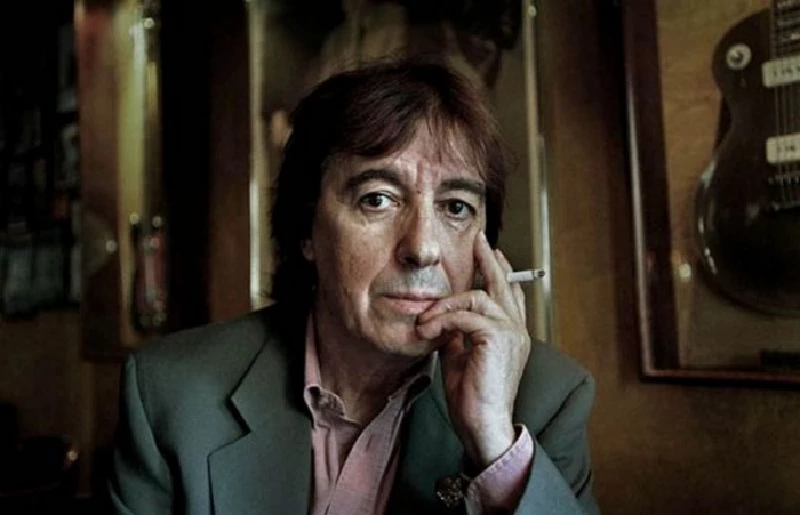
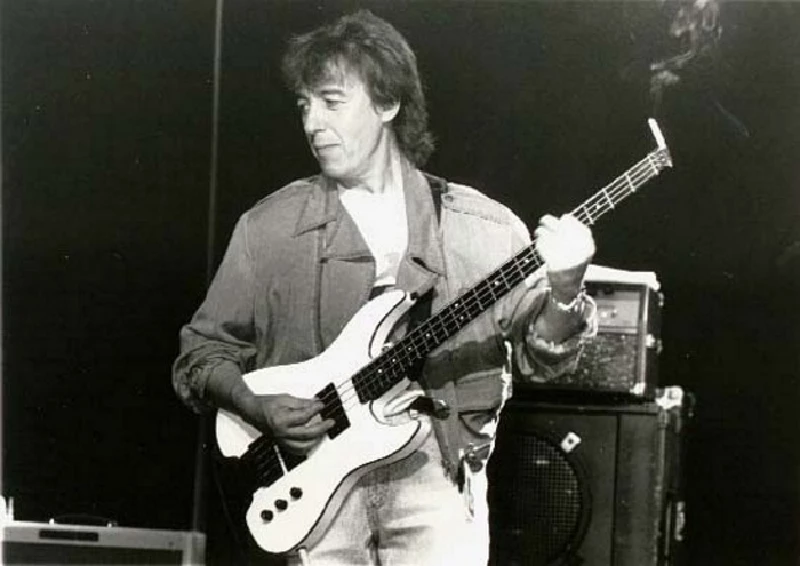
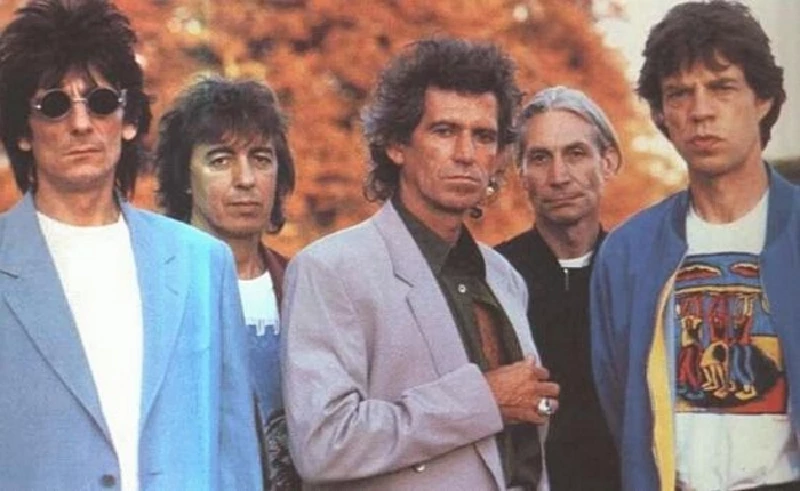
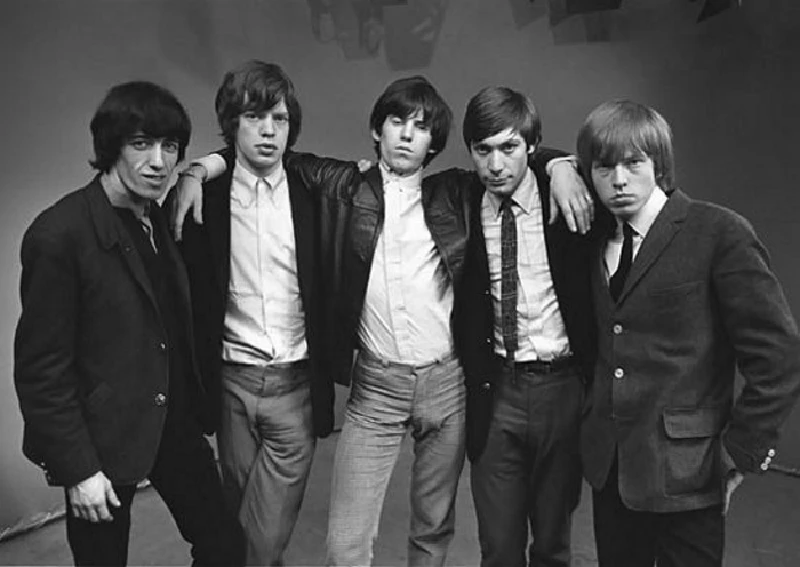
profiles |
|
The Quiet One (2022) |
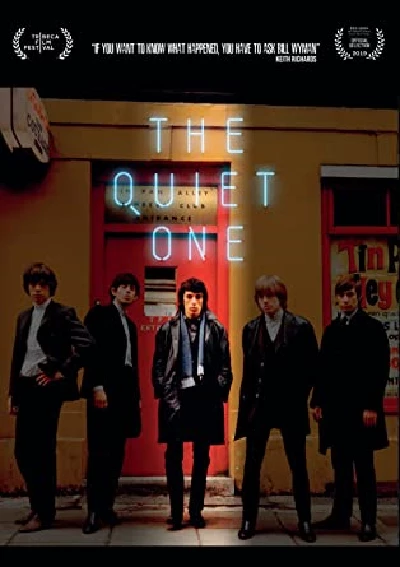
|
| Nick Dent-Robinson assesses Oliver Murray's nostalgic documentary, which now available on DVD, is a film biography of Rolling Stones founding member and bass player Bill Wyman |
soundcloud
reviews |
|
Drive My Car (2024) |
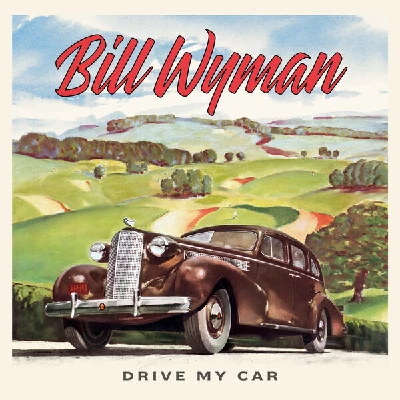
|
| Affectionate and distinctive but low-key covers collection and first solo album in nine years from former Rolling Stones bassist Bill Wyman |
| Back to Basics (2015) |
most viewed articles
current edition
Carl Ewens - David Bowie 1964 to 1982 On Track: Every Album, Every SongArmory Show - Interview with Richard Jobson
Bathers - Photoscapes 1
Colin Blunstone - Thalia Hall, Chicago, 16/7/2025
Visor Fest - Valencia, Spain, 26/9/2025...27/9/2025
Billie Eilish - O2 Arena, London, 10/7/2025
Robert Forster - Interview
Loft - Interview
John McKay - Interview
Editorial - July 2025
previous editions
Heavenly - P.U.N.K. Girl EPManic Street Preachers - (Gig of a Lifetime) Millennium Stadium, Cardiff, December 1999
Oasis - Oasis, Earl's Court, London, 1995
Trudie Myerscough-Harris - Interview
Beautiful South - Ten Songs That Made Me Love...
Pixies - Ten Songs That Made Me Love...
Prolapse - Interview
Simon Heavisides - Destiny Stopped Screaming: The Life and Times of Adrian Borland
Paul Clerehugh - Interview
Doris Brendel - Interview
most viewed reviews
current edition
Amy Macdonald - Is This What You've Been Waiting For?Sick Man of Europe - The Sick Man of Europe
Alice Cooper - The Revenge of Alice Cooper
Phew, Erika Kobayashi,, Dieter Moebius - Radium Girls
Davey Woodward - Mumbo in the Jumbo
Lucy Spraggan - Other Sides of the Moon
Blueboy - 2
Cynthia Erivo - I Forgive You
Philip Jeays - Victoria
Lapsley - I'm a Hurricane, I'm a Woman In Love
Pennyblackmusic Regular Contributors
Adrian Janes
Amanda J. Window
Andrew Twambley
Anthony Dhanendran
Benjamin Howarth
Cila Warncke
Daniel Cressey
Darren Aston
Dastardly
Dave Goodwin
Denzil Watson
Dominic B. Simpson
Eoghan Lyng
Fiona Hutchings
Harry Sherriff
Helen Tipping
Jamie Rowland
John Clarkson
Julie Cruickshank
Kimberly Bright
Lisa Torem
Maarten Schiethart